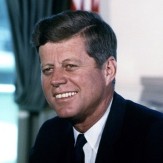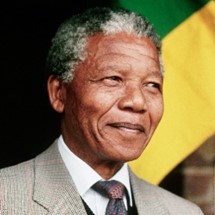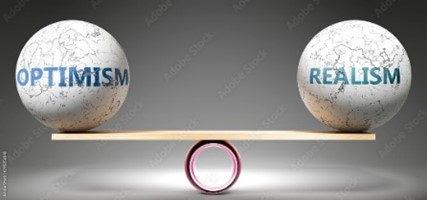This is the third in a series on optimism.
A psychologist told me about a colleague’s first meeting with a client. The client was a hard-driving, perfectionist New York City executive who felt the need to change his ways. He sought a therapist and several friends suggested the same person, so he called her office for an appointment. He was told the earliest opening was four months away, and he took it. On the morning of the appointment, he ran into terrible traffic. He got frustrated, furious, (he was used to being in control), and ended up 20 minutes late.
He rushed into the therapist’s office, sat down breathless, and started apologizing profusely. After a minute or two he paused. The therapist smiled and said, “But you made it!”
Sometime later he told friends he was relieved and grateful for that reaction, but mostly surprised. “I never imagined this kind response! It opened me up to all kinds of new and different thoughts and ideas.” The man realized how much his perfectionist standards were weighing him down. “In the past all I could do was battle against myself. My therapist showed me how I could focus more usefully. Not on my mistakes, which was always my pattern, but on the power of working towards something better. She was focused on my strengths.”
The harried exec’s experience reflects two of the strategies for developing optimism:
1. Reflect on the things you do that bring you down; look for alternatives.
This may seem obvious. But some people aren’t aware of their depressing habits. For instance, many have become obsessed with bad news. Unfortunately, the wizards who create social media know how to get us hooked by continually feeding us negative stories. There’s a term for this: “doomscrolling.” The medias’ algorithms feed us more of what we click on, and (sadly) some people get addicted.
Sometimes we need others to help us escape this negative cycle. In the award-winning film “The King’s Speech” the son of a British king is petrified about succeeding his father because of a life-long stammer. A warm but firm tutor helps him reduce his stammer. He also realizes that the future king is weighed down by thoughts of his overbearing father. Then the man becomes king, and is paralyzed at the thought of giving a speech that the country expects.
The king: Is the nation ready for two minutes of radio silence?
The tutor: Every stammerer is afraid of going back to step one; I don’t let that happen.
King: I could give a Christmas speech.
Tutor: Like your dad used to do.
King: Precisely. (he looks depressed)
Tutor: He’s not here anymore.
King: Yes he is, he’s on the shilling I gave you (the tutor had loaned him a shilling; British coins carry the images of past leaders)
Tutor: Easy enough to give away. You don’t have to carry him around in your pocket anymore. You don’t need to be afraid of the things you were afraid of when you were five … You’re very much your own man now.
Previously, the new king assumed his father would always control his thoughts and actions. But he trusted his tutor and took his words to heart. He worked hard and improved his speech, which helped him get his father’s long-time criticisms out of his head. And with war looming, he successfully gave a speech that lifted the nation’s confidence in him.
You might be thinking, I’ve tried to let go of my negative habits, but they persist. Now what? Fair question. I recently had a client who was being stalked online. It was horrific. For months the stalker wrote things like, “I know where you live. I know about your kids [and he named them], and where they go after school … here’s what I’m going to do to them when you’re not looking …” Her attorney ultimately found the man and he’s now in prison, but until then her life was hell.
She finally found a way to stop obsessing all day by using the “Las Vegas rule.” That’s what many gamblers do before a night at the casino; they decide to stop gambling once they lose a certain amount of money. My client applied that rule to time; she gave herself 15 minutes every morning to rant, rage, scream, write down her fantasies of capturing and killing the stalker … and then she went to work with her mind cleared. She couldn’t eliminate her obsession, but she did contain it.
If you have trouble letting go of negative thoughts, try the “Las Vegas rule.”
2. Reframe: Make something meaningful out of the experience.
The story of the therapist’s comment to her client is a wonderful example of reframing: “But you made it!” She didn’t deny his late arrival; she understood New York traffic but was more interested in the fact that he persisted and got to the meeting.
Numerous schools have used reframing to help struggling students improve in class. They’ve changed their grading system: instead of A, B, C, D, F, it’s now A, B, C, D, and NY. “NY”? That stands for Not Yet. The teachers aren’t pretending that a lousy paper or exam is good. They’re telling the student, “It’s not good, yet; but I have confidence that you can improve it.”
These schools are helping students reframe how they think about their academic performance, and there’s considerable evidence that it’s working. This short video describes the power of “yet,” in the classroom and elsewhere.
Here’s a different reframing example, one that includes both the first and second strategies. A friend of mine went through a messy, angry divorce. Whenever she thought about her ex she got furious. When her son Billy talked about missing his dad, she had trouble empathizing. She knew that Billy needed to hear good comments about his dad but she couldn’t provide them. Not, that is, until she had a powerful insight: “I realized one day that my most important job was to help Billy’s dad be the best co-parent he could be. It’s the most important because that’s what Billy needs.’”
Reframing can help us identify what’s most important in our lives.
She’d been putting her needs above her son’s. Once she reframed the goal, she was surprised how quickly her mindset and behaviors changed. She verbally patted herself on the back whenever she told Billy he had a good dad, whenever she helped her ex find fun activities to do with Billy.
Finally, using humor can be an excellent way to reframe situations and maintain optimism. Humor helps us get above the situation and detach from problems over which we have no  control. John Kennedy was a master at this. He developed a sense of humor as a child when he experienced serious illnesses and found that humor helped distract him. Years later during the 1960 election campaign his opponents kept complaining about the Kennedy family’s wealth. During one speech he addressed the issue head-on: “I just received a wire from my generous dad. ‘Dear Jack, don’t buy a single vote more than is necessary. I’ll be damned if I’m going to pay for a landslide!’”
control. John Kennedy was a master at this. He developed a sense of humor as a child when he experienced serious illnesses and found that humor helped distract him. Years later during the 1960 election campaign his opponents kept complaining about the Kennedy family’s wealth. During one speech he addressed the issue head-on: “I just received a wire from my generous dad. ‘Dear Jack, don’t buy a single vote more than is necessary. I’ll be damned if I’m going to pay for a landslide!’”
Needless to say, none of his opponents dared bring up his wealth again.



